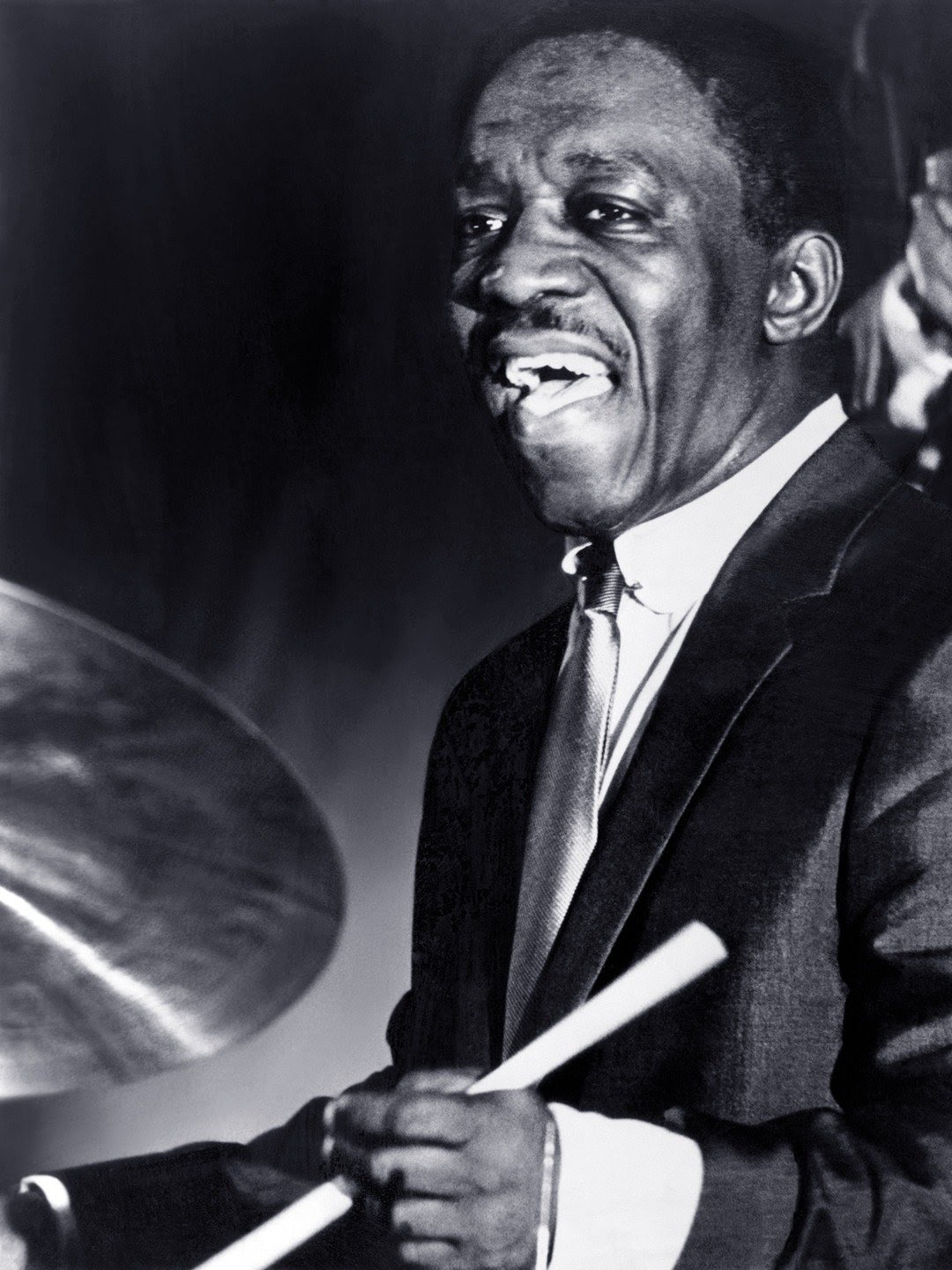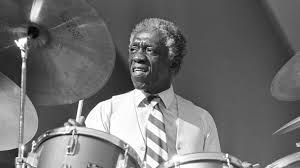Early Life and Musical Beginnings
Arthur “Art” Blakey was born on October 11, 1919, in Pittsburgh, Pennsylvania. Raised in a musical family, Blakey showed an early interest in music, initially playing the piano before transitioning to the drums. His early experiences in the vibrant Pittsburgh jazz scene laid the foundation for his future career. Blakey began playing professionally in his teens, performing with various local bands and honing his craft.
Professional Career
Blakey’s first major break came in the early 1940s when he joined the Fletcher Henderson Orchestra. This experience was pivotal, as it introduced him to the national jazz scene and helped him develop his distinctive drumming style characterized by powerful rhythms and dynamic improvisations. In 1944, Blakey moved to New York City, where he joined the legendary Billy Eckstine Orchestra. It was during this period that he began playing with some of the future giants of bebop, including Charlie Parker, Dizzy Gillespie, and Miles Davis.
In the late 1940s, Blakey converted to Islam and adopted the name Abdullah Ibn Buhaina, though he continued to be known professionally as Art Blakey. This period also marked the beginning of his association with the emerging bebop movement, a genre that he would help shape and popularize throughout his career.
The Jazz Messengers
In 1954, Blakey co-founded the Jazz Messengers with pianist Horace Silver. The group quickly became one of the most influential ensembles in jazz, known for its hard bop style that blended bebop’s complexity with blues and gospel influences. The Jazz Messengers served as a training ground for numerous young musicians who would go on to become jazz legends in their own right, including Wayne Shorter, Lee Morgan, Benny Golson, and Freddie Hubbard.
Blakey’s leadership of the Jazz Messengers was marked by his ability to recognize and nurture young talent. He was a mentor to countless musicians, encouraging them to develop their own voices while maintaining the group’s high standards. The Jazz Messengers’ music was characterized by its driving rhythms, soulful melodies, and intricate arrangements, all of which were hallmarks of Blakey’s approach to jazz.
Later Career and Legacy
Blakey continued to lead the Jazz Messengers until his death, constantly evolving the group’s lineup and sound to stay current with the changing jazz landscape. In the 1970s and 1980s, he enjoyed a resurgence in popularity, with the Jazz Messengers producing several critically acclaimed albums and continuing to tour internationally.
Blakey’s influence extended beyond his performances and recordings. He was a passionate advocate for jazz education, often conducting workshops and clinics to share his knowledge and inspire the next generation of musicians. His dedication to the art form earned him numerous awards and honors, including induction into the Down Beat Jazz Hall of Fame and the Grammy Lifetime Achievement Award.
Personal Life
Blakey’s personal life was as dynamic as his music. He was known for his charismatic personality and deep spirituality, which he expressed through his conversion to Islam and his devotion to his family. Blakey had ten children, many of whom followed in his musical footsteps. Despite the challenges of his demanding career, he remained a dedicated father and a beloved figure in the jazz community.
Death and Posthumous Recognition
Art Blakey passed away on October 16, 1990, in New York City, just a few days after his 71st birthday. His death marked the end of an era, but his legacy continues to resonate in the world of jazz. The numerous musicians he mentored and the innovative recordings he left behind serve as a testament to his enduring impact on the genre.
Blakey’s contributions to jazz are celebrated worldwide, with tributes, recordings, and performances dedicated to his memory. The Art Blakey Jazz Institute at UCLA, established to honor his legacy, continues his mission of fostering jazz education and preserving the art form he loved.
Conclusion
Art Blakey’s life and career were defined by his extraordinary talent, relentless dedication, and profound influence on jazz. As a drummer, bandleader, and mentor, he played a crucial role in shaping the sound of modern jazz and nurturing the talents of countless musicians. His legacy as a pioneer of bebop and hard bop ensures that his contributions to jazz will be remembered and celebrated for generations to come.


No responses yet